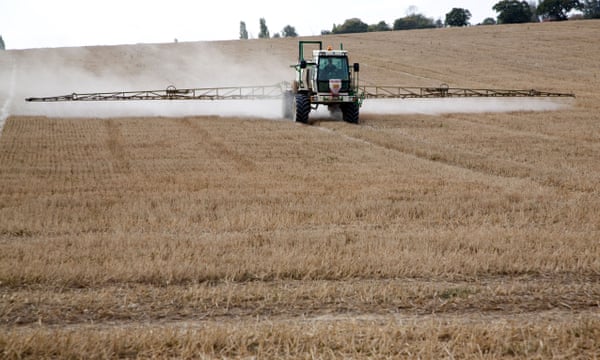"Informed AI News" is an publications aggregation platform, ensuring you only gain the most valuable information, to eliminate information asymmetry and break through the limits of information cocoons. Find out more >>
UK Allows Higher Pesticide Residues on Food Post-Brexit
- summary
- score

Since Brexit, the UK has allowed higher levels of pesticide residues on over 100 food items, from potatoes to avocados. Maximum Residue Levels (MRLs) for pesticides like chlorantraniliprole and boscalid in tea have surged by 4,000 times. Glyphosate, deemed a "probable human carcinogen" by the World Health Organization, now has a 7.5 times higher MRL for beans.
MRLs are meant to safeguard public health and the environment. Critics argue that the new, weaker MRLs expose consumers to reproductive toxins and carcinogens. Northern Ireland retains the stricter EU standards.
The changes occurred between 2022 and 2024 under the previous Conservative government, replacing EU-derived regulations. The EU has not weakened its MRLs; in some cases, they've tightened.
Pesticides Action Network UK (Pan UK) analyzed data from the Health and Safety Executive (HSE), revealing that MRLs for 49 pesticides were weakened, including 15 on a list of "highly hazardous pesticides." For instance, MRLs for avocados and pomegranates for the insecticide bifenthrin, a hormone disruptor, were raised 50 times.
Pan UK's Nick Mole stated, "Safety limits have been undermined for a worrying list of pesticides." The HSE maintains that decisions are based on scientific risk assessments, ensuring safety.
The UK adopted weaker MRLs from the Codex Alimentarius, a UN-backed set of international food standards often criticized for being less stringent than EU counterparts due to corporate lobbying. The UK only adopted Codex standards that offered lower protection.
Mole urged the new government to reverse these changes, emphasizing the need for a precautionary approach prioritizing health and environment. The HSE and Defra assert that MRL decisions are rigorously assessed for public safety.
| Scores | Value | Explanation |
|---|---|---|
| Objectivity | 4 | Balances viewpoints but slightly leans towards criticizing changes. |
| Social Impact | 5 | Significantly influences public opinion on food safety. |
| Credibility | 5 | Solid evidence from authoritative sources. |
| Potential | 5 | High potential to trigger larger discussions on food safety. |
| Practicality | 4 | Highly practical for addressing food safety issues. |
| Entertainment Value | 2 | Slightly monotonous but includes some informative elements. |